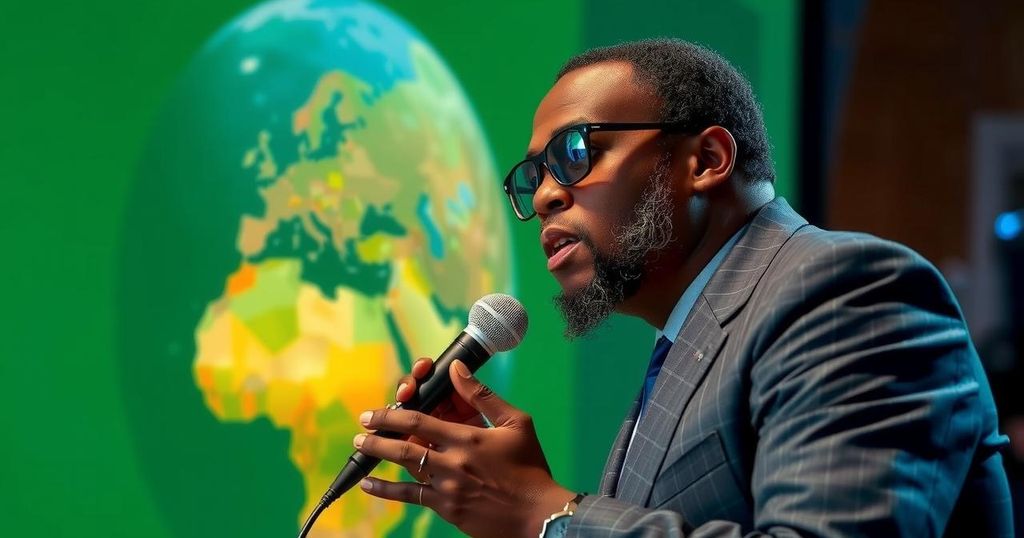At COP29, Kenyan climate scientist Joyce Kimutai expressed disappointment over the lack of action and financial support for climate-vulnerable regions. Despite her expertise and role with the UN’s IPCC, she feels progress is slow and inadequate. Kimutai highlights the dire consequences of climate inaction, especially in Africa, and advocates for fair financial commitments from wealthy nations to support adaptation efforts without pushing developing countries into debt.
At the COP29 climate conference in Azerbaijan, Kenyan climate scientist Joyce Kimutai expressed her frustration over the world’s failure to heed scientific warnings regarding climate change. With a focus on vulnerable countries in Africa, Asia, and Latin America, Kimutai lamented the slow pace of action and lack of financial support for the adaptation and transition to clean energy that these regions urgently require. Despite her role as a lead author for the UN’s Intergovernmental Panel on Climate Change (IPCC), she remains skeptical about progress, particularly as extreme weather events become increasingly frequent and damaging. Kimutai articulated the dire consequences of climate inaction, noting the personal impact of recent catastrophic events in Kenya, such as severe droughts and subsequent floods that have devastated communities. She asserted that Africa, while often depicted as merely a recipient of aid, plays a crucial role in advocating for fair climate reparations. As head of the Africa Group of Negotiators, she emphasized the need for wealthy nations to commit to substantial financial assistance without further burdening poorer countries with debt. Kimutai decried the current haggling over funding, describing it as humiliating, especially when urgent action is essential. Nevertheless, she remains determined, believing that scientific insight must drive policy decisions to ensure a sustainable future. Through her work, she strives to bridge the gap between evidence-based recommendations and the political will to implement necessary changes aimed at mitigating the impacts of climate change across vulnerable regions.
As the world grapples with the escalating effects of climate change, discussions at global summits such as COP29 are vital for addressing the urgent needs of vulnerable nations. Countries in Africa, Asia, and Latin America are particularly at risk due to their geographical and socio-economic contexts. Scientists and experts, like Joyce Kimutai, advocate for immediate financial and technical support from wealthier nations to enable these countries to adapt strategies for mitigating climate impacts, transition to renewable energy sources, and build resilience against extreme weather events. The ongoing struggle for equitable climate negotiations underscores the complexities of global environmental policy-making, where the voices of those most affected by climate change often get overshadowed by political agendas.
In summary, Joyce Kimutai’s reflections at COP29 highlight the urgent need for the international community to listen to scientific data and embrace bold action against climate change. Her advocacy for increased financial support for climate-vulnerable nations underscores the necessity of addressing financial inequalities in climate negotiations. As the repercussions of climate change become more dire, the call for immediate, informed action is critical not only for affected regions but also for global stability. Kimutai’s commitment to her work in academia and policy illustrates the important intersection of science and advocacy in driving meaningful change.
Original Source: www.barrons.com






